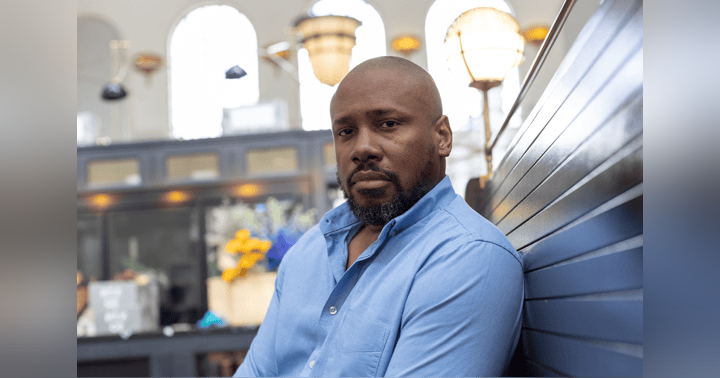
In our latest podcast episode, we had the privilege of speaking with Shruti Sethi, a nutritionist, cancer coach, and cancer survivor, about her remarkable journey of overcoming cancer using a holistic approach. Shruti shared insights into how integrating conventional cancer treatments with alternative therapies, such as ozone therapy and high-dose vitamin C (IVC), can create a comprehensive strategy for supporting overall well-being. This blog post expands on the topics discussed in the episode, providing a deeper understanding of the potential benefits of combining conventional and alternative treatments for cancer. You can listen to the full episode with Shruti Sethi here.
Introduction: The Intersection of Conventional and Alternative Cancer Treatments
Cancer treatment has traditionally relied on conventional methods such as surgery, chemotherapy, and radiation therapy. While these treatments have proven effective in many cases, they often come with significant side effects. As a result, there's a growing interest in exploring alternative therapies that can complement these conventional approaches, potentially improving the quality of life for cancer patients and enhancing their overall treatment outcomes. This integrative approach recognizes the importance of treating the whole person – mind, body, and spirit – rather than focusing solely on the disease itself.
The idea behind combining conventional and alternative treatments is to harness the strengths of both. Conventional treatments target cancer cells directly, while alternative therapies aim to support the body's natural healing mechanisms, boost the immune system, and mitigate the side effects of conventional treatments. By integrating these approaches, patients may experience improved physical and emotional well-being throughout their cancer journey.
Shruti Sethi's Journey: From Fashion to Holistic Healing
Shruti Sethi's story is a testament to the power of holistic healing. Initially a successful fashion designer, Shruti's life took an unexpected turn when she was diagnosed with stage 3 lymphatic cancer at the age of 34. Facing a daunting diagnosis, she embarked on a journey to explore alternative therapies alongside conventional medical treatments. Through this process, she discovered the profound impact of nutrition, mindfulness, yoga, and a strong support system on her healing journey.
Shruti's personal experience led her to transition from the world of fashion to becoming a certified nutritionist and holistic cancer coach. She founded Awaana Health with the mission of helping others reverse chronic conditions and find healing beyond traditional medicine. Her book, The Healing Power Within, shares her story and offers practical guidance for those seeking to integrate holistic practices into their lives. Her journey underscores the potential for lifestyle changes and alternative therapies to play a significant role in cancer recovery.
Understanding the Role of a Cancer Coach
A cancer coach serves as a guide and advocate for individuals navigating the complexities of cancer treatment. Cancer coaches provide emotional support, education, and practical assistance to help patients make informed decisions about their care. They can help patients understand their treatment options, manage side effects, and develop strategies for coping with the emotional and psychological challenges of cancer.
The role of a cancer coach is particularly crucial in the context of integrative cancer care. They can help patients navigate the often confusing landscape of alternative therapies, ensuring that these treatments are safe and appropriate for their individual needs. Cancer coaches can also facilitate communication between patients and their medical team, ensuring that all aspects of their care are coordinated and aligned.
Conventional Cancer Treatments: A Brief Overview
Conventional cancer treatments, such as surgery, chemotherapy, and radiation therapy, remain the cornerstone of cancer care. Surgery involves the physical removal of cancerous tissue and is often the first line of treatment for solid tumors. Chemotherapy uses powerful drugs to kill cancer cells or slow their growth. Radiation therapy uses high-energy rays to damage cancer cells and prevent them from spreading.
While these treatments can be highly effective, they also have significant side effects. Surgery can lead to pain, infection, and prolonged recovery times. Chemotherapy can cause nausea, fatigue, hair loss, and a weakened immune system. Radiation therapy can cause skin irritation, fatigue, and damage to nearby organs. These side effects can significantly impact a patient's quality of life and may require additional interventions to manage.
Exploring Alternative Therapies: Ozone Therapy and IVC (High-Dose Vitamin C)
Alternative therapies, such as ozone therapy and high-dose vitamin C (IVC), are gaining recognition for their potential to complement conventional cancer treatments. Ozone therapy involves introducing ozone gas into the body to stimulate the immune system and promote healing. Proponents of ozone therapy claim that it can help to kill cancer cells, reduce inflammation, and improve overall health. However, it's important to note that ozone therapy is not yet widely accepted by the conventional medical community, and more research is needed to fully understand its effectiveness and safety.
High-dose vitamin C (IVC) is another alternative therapy that has shown promise in cancer treatment. Vitamin C is a powerful antioxidant that plays a crucial role in immune function. When administered intravenously in high doses, vitamin C can reach concentrations in the body that are not achievable through oral supplementation. Some studies suggest that IVC may help to kill cancer cells, reduce inflammation, and improve the quality of life for cancer patients. While research on IVC is ongoing, it has emerged as a potentially valuable adjunctive therapy.
How Alternative Therapies Complement Conventional Treatments
The integration of alternative therapies with conventional cancer treatments aims to create a synergistic effect, where the benefits of each approach are amplified. Alternative therapies can help to mitigate the side effects of conventional treatments, making them more tolerable for patients. For example, acupuncture can help to reduce nausea caused by chemotherapy, while massage therapy can help to alleviate pain and anxiety. Additionally, alternative therapies can support the body's natural healing mechanisms, boosting the immune system and promoting overall well-being.
Furthermore, alternative therapies can address the emotional and psychological needs of cancer patients, which are often overlooked in conventional treatment plans. Practices like meditation, yoga, and mindfulness can help patients to manage stress, reduce anxiety, and cultivate a sense of inner peace. By addressing these emotional and psychological factors, alternative therapies can enhance the overall effectiveness of cancer treatment and improve patients' quality of life.
The Importance of Mindset and Emotional Well-being in Cancer Recovery
Mindset and emotional well-being play a crucial role in the cancer recovery process. A positive mindset can help patients to cope with the challenges of cancer treatment, maintain hope, and stay motivated to fight the disease. Emotional well-being can reduce stress, anxiety, and depression, which can weaken the immune system and hinder the body's ability to heal.
Practices like meditation, yoga, and mindfulness can help patients to cultivate a positive mindset and improve their emotional well-being. These practices can promote relaxation, reduce stress hormones, and increase feelings of inner peace. Additionally, connecting with a support group or therapist can provide patients with a safe space to express their emotions, process their experiences, and receive support from others who understand what they are going through.
Nutrition as a Cornerstone of Holistic Cancer Care
Nutrition is a cornerstone of holistic cancer care. A healthy diet can provide the body with the nutrients it needs to fight cancer, boost the immune system, and repair damaged tissues. A plant-based diet rich in fruits, vegetables, whole grains, and legumes can provide antioxidants, vitamins, and minerals that support overall health. Additionally, certain foods have been shown to have specific anti-cancer properties.
Avoiding processed foods, sugary drinks, and unhealthy fats is also important for cancer patients. These foods can contribute to inflammation, weaken the immune system, and promote cancer growth. Working with a registered dietitian or nutritionist can help cancer patients to develop a personalized nutrition plan that meets their individual needs and supports their overall treatment goals.
The Power of Community and Support Systems
Community and support systems play a vital role in the cancer journey. Connecting with others who have experienced cancer can provide patients with emotional support, practical advice, and a sense of belonging. Support groups can offer a safe space for patients to share their experiences, express their emotions, and receive encouragement from others who understand what they are going through.
Family and friends can also provide valuable support to cancer patients. They can offer practical assistance with tasks like transportation, meal preparation, and childcare. They can also provide emotional support by listening to patients, offering encouragement, and simply being there for them during difficult times. Building a strong support system can help cancer patients to feel less isolated, more empowered, and better equipped to cope with the challenges of cancer treatment.
Preview of Shruti Sethi's Upcoming Cookbook for Cancer Healing
Shruti Sethi is currently working on a plant-based cookbook designed specifically for cancer healing. This cookbook will feature recipes that are rich in nutrients, antioxidants, and anti-inflammatory compounds, all carefully selected to support the body's natural healing processes. The recipes will be easy to prepare and delicious, making it easier for cancer patients to incorporate healthy eating habits into their daily lives. The cookbook will also provide information on the specific benefits of each ingredient and how it can support cancer recovery.
Shruti's upcoming cookbook is a valuable resource for cancer patients and their caregivers. It provides practical guidance on how to use nutrition to support cancer treatment, boost the immune system, and improve overall well-being. Stay tuned for the release of this exciting new resource!
Practical Steps to Integrating Conventional and Alternative Treatments
Integrating conventional and alternative treatments requires a collaborative approach between patients, their medical team, and alternative therapy practitioners. The first step is to openly communicate with your oncologist about your interest in exploring alternative therapies. It is crucial to ensure that any alternative treatments you consider are safe and do not interfere with your conventional cancer treatments.
Next, research and identify qualified alternative therapy practitioners. Look for practitioners who are licensed or certified in their respective fields and who have experience working with cancer patients. Schedule consultations with potential practitioners to discuss your individual needs and treatment goals. Be sure to ask about their experience, training, and the potential risks and benefits of their treatments.
Finally, develop a comprehensive treatment plan that integrates both conventional and alternative therapies. Work with your medical team and alternative therapy practitioners to create a plan that is tailored to your individual needs and goals. Regularly monitor your progress and make adjustments to your treatment plan as needed. Remember, the goal is to create a holistic approach that supports your physical, emotional, and spiritual well-being throughout your cancer journey.
Embracing a Holistic Approach to Cancer Care
Embracing a holistic approach to cancer care means recognizing the interconnectedness of mind, body, and spirit. It involves addressing not only the physical aspects of the disease but also the emotional, psychological, and spiritual needs of the patient. A holistic approach empowers patients to take an active role in their own healing journey, fostering a sense of control and hope.
By integrating conventional and alternative treatments, prioritizing nutrition and emotional well-being, and building a strong support system, cancer patients can create a comprehensive strategy for improving their quality of life and enhancing their overall treatment outcomes. Remember, healing is a journey, not a destination. Be patient with yourself, celebrate your progress, and never give up hope.
In conclusion, combining conventional and alternative treatments for cancer offers a promising path towards holistic healing. As we discussed in this episode, Shruti Sethi's journey exemplifies the power of integrating these approaches, along with a focus on mindset, nutrition, and community support. By embracing this holistic perspective, cancer patients can empower themselves to navigate their journey with greater resilience and well-being. Be sure to check out the full episode with Shruti here to learn more about her inspiring story and practical insights.










